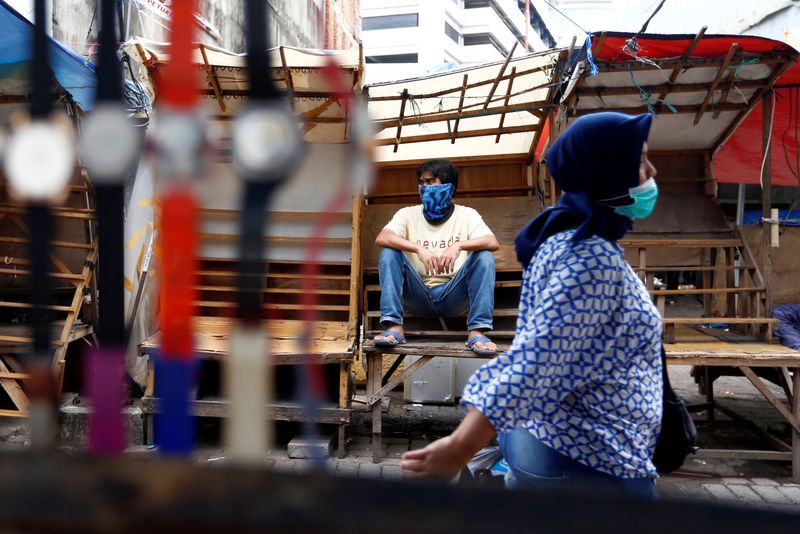
FILE PHOTO: People wearing protective face masks are seen near closed street vendors booths at a traditional market amid the spread of the coronavirus disease (COVID-19) in Jakarta, Indonesia May 4, 2020. REUTERS/Ajeng Dinar Ulfiana
July 18, 2020
JAKARTA (Reuters) – Indonesia has increased tax incentives for businesses in a move to try and limit the economic impact of the coronavirus pandemic, its tax office said on Saturday.
Previously announced tax relief that were due to expire in September, have been extended until the end of the year, a statement said. They include tax breaks for some manufacturing workers and small and medium-size enterprises, and a discount on corporate tax installments.
The government has also expanded the type of companies eligible to apply for the tax breaks, including, for example, forestry businesses in the scheme.
It has allocated nearly $50 billion in state spending to fight the coronavirus pandemic. That, and a projected drop in fiscal revenues, are seen expanding its 2020 budget deficit by more than three times the government’s original plan, to 6.34% of gross domestic product.
Finance Minister Sri Mulyani Indrawati has previously said the tax breaks were meant to prevent “massive bankruptcies”.
The government’s forecast for the economy, Southeast Asia’s largest, ranges between a 0.4% contraction and a 1% growth. It grew 5% last year.
On Saturday, Indonesia overtook China as the country with the most confirmed coronavirus cases in East Asia, with 84,882 infections and 4,016 deaths.
(Reporting by Tabita Diela; Editing by Gayatri Suroyo and Clelia Oziel)

